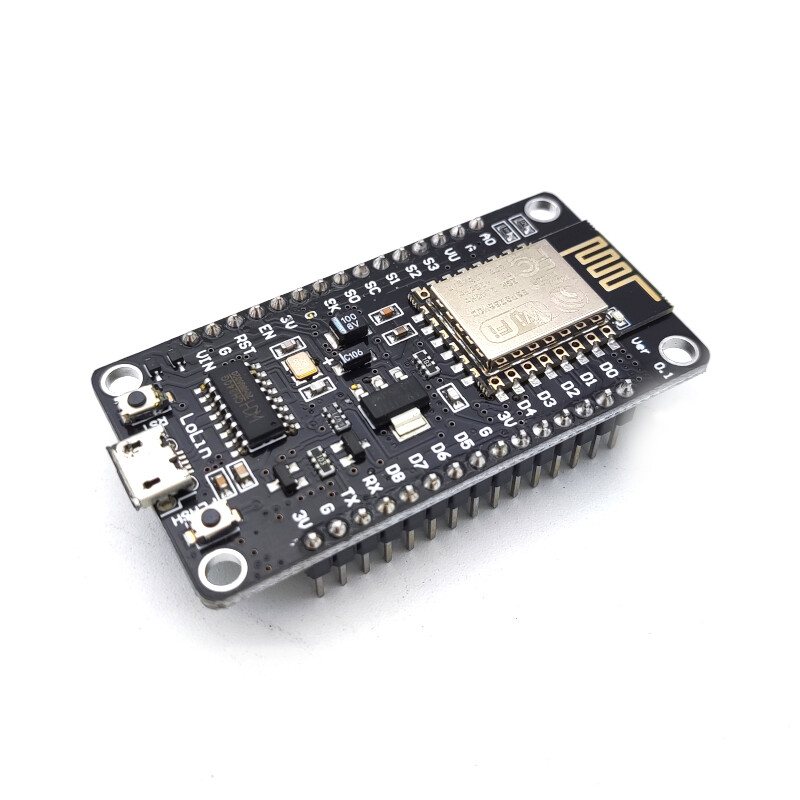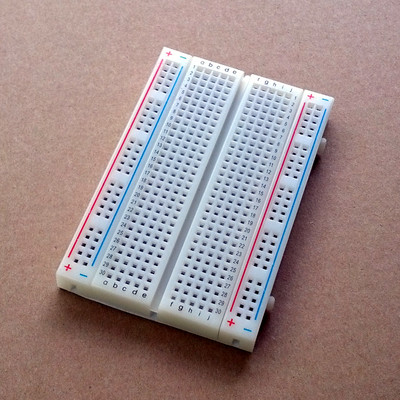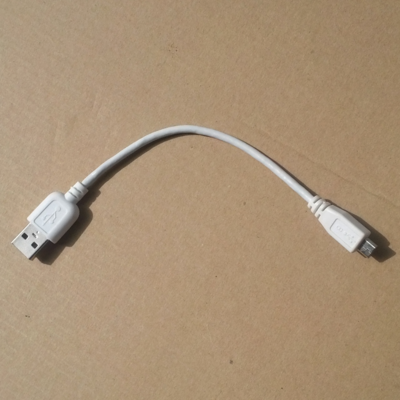
ESP8266 NodeMCU Lua WiFi Development Board V3
This is a NodeMCU development board with ESP8266 WiFi SoC as the main processor. This board is dubbed as the V3 and uses the ESP-12E module ( a variant of ESP8266).
Among the features on this board are:
- Breadboard friendly - It is more narrow, so it fits nicely into a standard breadboard
- New ESP8266 ESP-12E core - 6 extra GPIOs, 32Mbits flash
- CH340G USB-Serial chip on board
The board comes with NodeMCU firmware flashed by default. To begin, you need connect it to your PC with a micro USB cable. The CH340G USB-to-serial interface will be detected and you have to install the driver for it. Once it is properly recognized by your system, you can use tools like Esplorer or LuaLoader (links below) or even other serial terminal programs (Putty, Simple Term etc.), connect it to the dev board via COM port with 9600 baudrate and upload your Lua codes or run it interactively.
If you want to flash a newer version of NodeMCU (or other firmware), you can use the ESP8266 flasher which can be found from NodeMCU's github page (link below). With other ESP8266 boards, you have to pull GPIO0 to ground but with this dev board, it will automatically do it for you.
The pins on board give you access to various hardware interfaces such as GPIO, PWM, I2C, 1-Wire and ADC that you can connect to sensors, switches and relays for interaction with the real world.
Things just got better! It is now possible to program this board using the popular Arduino IDE. Check it out here!
Features:
- Operating voltage: 5V via microUSB port (USB to 3.3V supply on board), GPIO pins are 3.3V
- Operating current: ~215mA
- micro USB port for power, programming and debugging
- WiFi Module: ESP8266 ESP-12E module integrated on board
- CH340G USB to serial bridge on board
- Headers: 2 rows of 15-pin 2.54mm header with access to GPIOs, SPI, UART, ADC, and power pins
- Buttons: Flash and Reset buttons
- Interfaces: GPIO, PWM, I2C, 1-Wire, ADC
- Board dimension: 49 x 24.5 x 13mm
Useful links:
- Datasheet
- ESP8266 forum
- ESP8266 wiki
- ESPlorer - multi-platform IDE for ESP8266 developers (Lua, MicroPython, AT commands)
- LuaLoader - Windows program to upload Lua files to ESP8266


